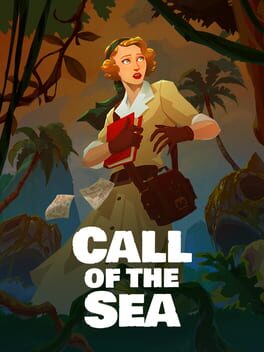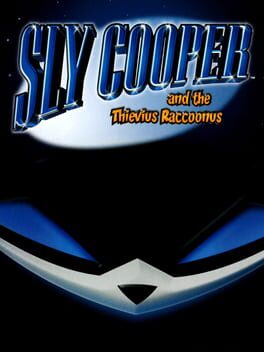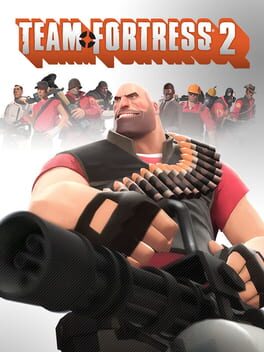Songbird
9 reviews liked by Songbird
Call of the Sea
2020
Call of the Sea
2020
Call of the Sea
2020
Call of the Sea
2020
Call of the Sea
2020
Honestly a cute and rather beautful adventure game with a decent plot that feels like it could have done with a little more. The main plottwists sadly are a little too well telegraphed and the puzzles mostly are a little too far on the easy side thanks to Nora's continous note-taking and chattering causing the game to feel a little too hand-holdy at times.
Still. If you want a cozy afternoon adventure style of game, you've got one here. Its not ground breaking but it does an allright job at it.
Still. If you want a cozy afternoon adventure style of game, you've got one here. Its not ground breaking but it does an allright job at it.
Call of the Sea
2020
The Beginner's Guide
2015
This review contains spoilers
Recommended by gomit as part of this list.
When I was in middle school, I pirated a copy of RPG Maker VX Ace and said "I'm going to make a video game." My very first project was a joke game based on those MLG memes (the air horns, the crosshairs, "MOM GET THE CAMERA!", the works) and it was rough. Even in the limited, easy-to-use confines of RPG Maker, I could barely figure out how to program a map transition, or even set up a basic variable flag. I managed to program one boss fight and gave up. Over the years, ideas would come and go, only ever ending up half-baked ideas that were excuses to try something new, like writing music or learning digital art. An isometric Bully-clone. A Persona 3-style dungeon crawler. The mandatory Quirky Earthbound-Inspired RPG that all indie developers make at some point. A cosmic-horror JRPG with anime girls. All of these ideas living in the margins of sketchbooks or as slap-dash digital sprites drawn with my shitty dollar store mouse. It would take me until I was 20 (7 whole years from the day I pirated that copy of VX Ace!) to actually publish my first completed project. I would feign to call myself a "game developer", but I bring this up because I think it's a substantial part of my life that colors my view of The Beginner's Guide.
The Beginner's Guide is an hour long interactive experience that serves as a commentary on both artist and audience, and the relationship between the two. Before the twist revealed in the second to last chapter of the game, the use of this fictional developer (Coda), their oeuvre, and the Director's Commentary provided by the psuedo-fictional caricature of The Beginner Guide's own creator (Wreden) weave this tale of artistic expression and burnout through the medium most infamous for how it chews up and spits out its creators: video games. The arc we witness of finding the joy in creation, fixating on some kind of platonic ideal for your work, before spiraling and losing your passion, realizing that you're burnt out and that throwing yourself in the grinder day-in day-out isn't going to give you the results you want is something that I as a struggling creative myself can sympathize with.
But after that twist is revealed, that Coda didn't burn out from creative strain, but from being subject to an audience that wanted to live vicariously through his work and pick apart his very being, there is a much more universal struggle revealed: the need for validation and external approval, and the purpose of art. Wreden using Coda's work to validate himself by presenting it to other people, despite Coda's wish to keep his work private; Wreden modifying Coda's games to provide more concrete meaning so as to fit in-line with Werden's sensibilities, even when it was established in an earlier chapter that Coda believed that games didn't need to be so objective or finished; Werden trying so hard to understand Coda's work that he armchair analyzes a creative, when Coda never meant nor really wanted his work to be so emotionally open and raw. The age of hours-long YouTube video essayists and Armchair Critics on Media Logging Websites (wink wink nudge nudge) have made all of this behavior resonate years after release, of people trying to gain validation by analyzing art and showing that they get it, using media as a springboard to share their own ideas and struggles, gain their own audience via their ability to read into art, commodifying the idea of the creative and their struggles to make their body of work seem so much more unique and genuine and meaningful. Publishing anything runs that risk but nowadays putting even the slightest fragment of your soul into something potentially thousands if not millions can observe and pick apart and psychoanalyze borders on cosmic horror.
It begs the question of what art and self-expression is supposed to do for an audience. Do we really know an artist just because they made something emotionally vulnerable? Do we know them even if the art isn't overtly personal? Is it bad to not look into a work? Is it bad to look too much into something? How much should we analyze of an author's persona, and at what point does it stop being media analysis and shift into armchair psychology? That last minute twist raises a lot of tough questions about how we as consumers engage with art and what makes it work so well is that the twist doesn't invalidate the first 95% of the game. It manages to be about two conflicting subjects without really cancelling each other out with the questions being raised by both halves of the game, and as both artist and critic, I don't have any real answers for the conundrums it presents. Would it have been better to look at this as a metaphor for Werden and his release of Stanley Parable, or is that doing exactly what the Werden in Beginner's Guide did by trying to read into someone's personal life based solely on their published work? Am I wrong to have tried to connect this piece of art to my own life experiences, or did it help enhance my enjoyment? Am I engaging with this medium correctly by writing all these words? Would I ever want this to happen to me and my own body of work?
Who knows.
When I was in middle school, I pirated a copy of RPG Maker VX Ace and said "I'm going to make a video game." My very first project was a joke game based on those MLG memes (the air horns, the crosshairs, "MOM GET THE CAMERA!", the works) and it was rough. Even in the limited, easy-to-use confines of RPG Maker, I could barely figure out how to program a map transition, or even set up a basic variable flag. I managed to program one boss fight and gave up. Over the years, ideas would come and go, only ever ending up half-baked ideas that were excuses to try something new, like writing music or learning digital art. An isometric Bully-clone. A Persona 3-style dungeon crawler. The mandatory Quirky Earthbound-Inspired RPG that all indie developers make at some point. A cosmic-horror JRPG with anime girls. All of these ideas living in the margins of sketchbooks or as slap-dash digital sprites drawn with my shitty dollar store mouse. It would take me until I was 20 (7 whole years from the day I pirated that copy of VX Ace!) to actually publish my first completed project. I would feign to call myself a "game developer", but I bring this up because I think it's a substantial part of my life that colors my view of The Beginner's Guide.
The Beginner's Guide is an hour long interactive experience that serves as a commentary on both artist and audience, and the relationship between the two. Before the twist revealed in the second to last chapter of the game, the use of this fictional developer (Coda), their oeuvre, and the Director's Commentary provided by the psuedo-fictional caricature of The Beginner Guide's own creator (Wreden) weave this tale of artistic expression and burnout through the medium most infamous for how it chews up and spits out its creators: video games. The arc we witness of finding the joy in creation, fixating on some kind of platonic ideal for your work, before spiraling and losing your passion, realizing that you're burnt out and that throwing yourself in the grinder day-in day-out isn't going to give you the results you want is something that I as a struggling creative myself can sympathize with.
But after that twist is revealed, that Coda didn't burn out from creative strain, but from being subject to an audience that wanted to live vicariously through his work and pick apart his very being, there is a much more universal struggle revealed: the need for validation and external approval, and the purpose of art. Wreden using Coda's work to validate himself by presenting it to other people, despite Coda's wish to keep his work private; Wreden modifying Coda's games to provide more concrete meaning so as to fit in-line with Werden's sensibilities, even when it was established in an earlier chapter that Coda believed that games didn't need to be so objective or finished; Werden trying so hard to understand Coda's work that he armchair analyzes a creative, when Coda never meant nor really wanted his work to be so emotionally open and raw. The age of hours-long YouTube video essayists and Armchair Critics on Media Logging Websites (wink wink nudge nudge) have made all of this behavior resonate years after release, of people trying to gain validation by analyzing art and showing that they get it, using media as a springboard to share their own ideas and struggles, gain their own audience via their ability to read into art, commodifying the idea of the creative and their struggles to make their body of work seem so much more unique and genuine and meaningful. Publishing anything runs that risk but nowadays putting even the slightest fragment of your soul into something potentially thousands if not millions can observe and pick apart and psychoanalyze borders on cosmic horror.
It begs the question of what art and self-expression is supposed to do for an audience. Do we really know an artist just because they made something emotionally vulnerable? Do we know them even if the art isn't overtly personal? Is it bad to not look into a work? Is it bad to look too much into something? How much should we analyze of an author's persona, and at what point does it stop being media analysis and shift into armchair psychology? That last minute twist raises a lot of tough questions about how we as consumers engage with art and what makes it work so well is that the twist doesn't invalidate the first 95% of the game. It manages to be about two conflicting subjects without really cancelling each other out with the questions being raised by both halves of the game, and as both artist and critic, I don't have any real answers for the conundrums it presents. Would it have been better to look at this as a metaphor for Werden and his release of Stanley Parable, or is that doing exactly what the Werden in Beginner's Guide did by trying to read into someone's personal life based solely on their published work? Am I wrong to have tried to connect this piece of art to my own life experiences, or did it help enhance my enjoyment? Am I engaging with this medium correctly by writing all these words? Would I ever want this to happen to me and my own body of work?
Who knows.
Team Fortress 2
2007
Team Fortress 2 is my favorite multiplayer game. I would not be the person I am today without Team Fortress 2. I do not say this lightly when I mean that I would literally not know more than half the people in my life if not for the Summers I spent on my grandparents terrible PC, and later my terrible laptop, playing Team Fortress 2 on community servers. Say what you will about the game today, but this game was my gateway into everything because of how I was able to interact with the community. It was also just a really fun FPS back when Valve had less reluctant people updating it. Thinking back on Team Fortress 2 is much more enjoyable than actually playing it today, but it still gets the 5 stars for being one of the most important games I had in my formative years.



